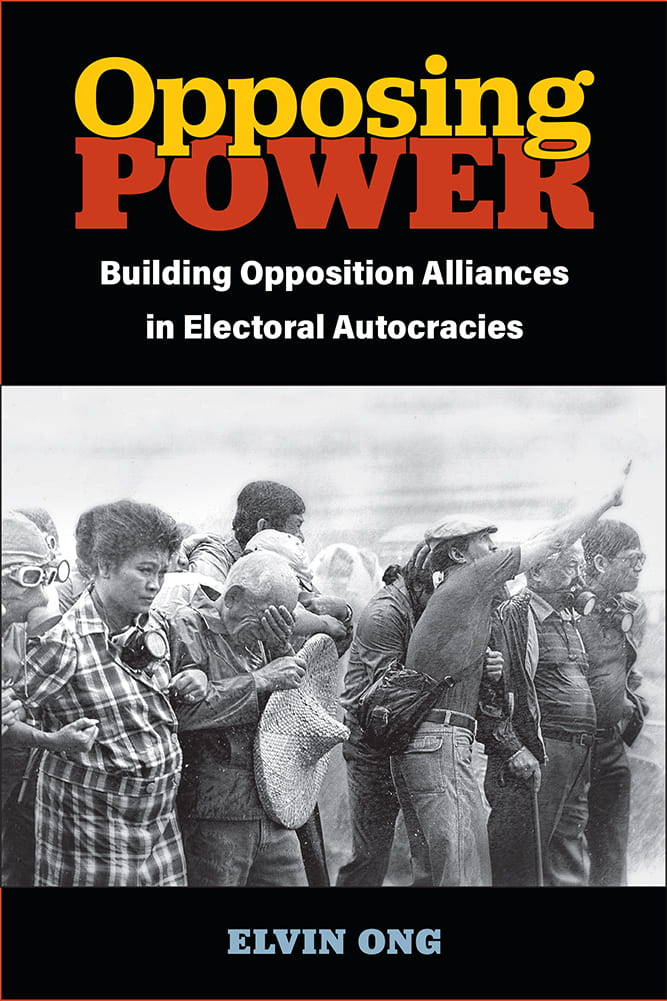Opposing Power: Building Opposition Alliances in Electoral Autocracies
Elvin Ong
University of Michigan Press
Opposing Power argues that perceptions of regime vulnerability and mutual dependency by the opposition elite shape their efforts to build opposition alliances. When electoral autocracies are consistently dominant, opposition parties eschew building fully fledged alliances. At best, they coordinate to allocate only one opposition candidate to contest against the incumbent’s candidate in each subnational electoral district to avoid splitting the opposition vote. However, when multiple regime-debilitating events strike within a short period of time to push an incumbent to the precipice of power, opposition elites raise their expectations of victory, galvanizing efforts to accept costly compromises to build alliances and topple the incumbent from power. Of course, opposition party leaders only build alliances if they expect to depend on each other to achieve victory. If they perceive that they can achieve victory on their own, they are unlikely to construct alliances because they want to avoid its costly investments. Opposing Power demonstrates this theory through two pairs of case study comparisons in East and Southeast Asia—between the Philippines and South Korea in the late 1980s, and between Malaysia and Singapore from 1965 to 2020.
Ong, E. Opposing Power: Building Opposition Alliances in Electoral Autocracies. University of Michigan Press. 2022.



You must be logged in to post a comment.